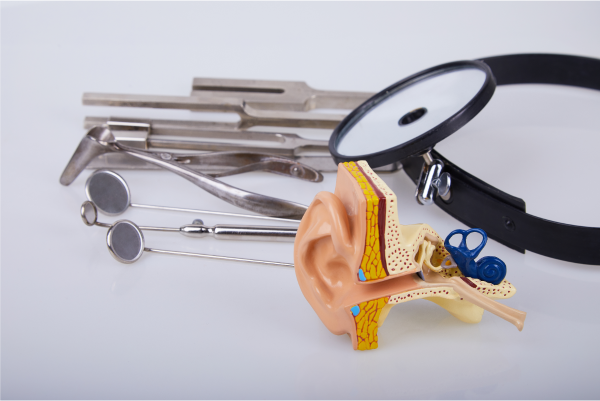Voice hoarseness or a lost voice can be distressing and inconvenient, particularly for those who rely on their voice for professional or social purposes. While occasional hoarseness is often harmless and resolves on its own, persistent or severe issues may require medical attention. Understanding when to see an ENT (Ear, Nose, and Throat) doctor for voice problems is crucial for timely and effective treatment. This guide will explore the causes, symptoms, and appropriate times to seek medical attention from a Los Angeles ENT for hoarseness or voice loss.
Understanding Voice Hoarseness and Loss
What is Voice Hoarseness?
Voice hoarseness refers to a change in the quality of your voice, making it sound breathy, raspy, or strained. This condition can result from various factors affecting the vocal cords or larynx (voice box). Hoarseness is a symptom rather than a disease and can range from mild to severe.
What is Voice Loss?
Voice loss, also known as aphonia, is the inability to produce vocal sounds. This can be partial or complete and may develop suddenly or gradually. Like hoarseness, voice loss can stem from multiple underlying issues.
Common Causes of Voice Hoarseness and Loss
Acute Laryngitis
Cause: Viral infections, such as the common cold or flu, are the most frequent cause of acute laryngitis.
Symptoms: Sudden onset of hoarseness, voice loss, sore throat, and possibly a fever.
Treatment: Resting the voice, staying hydrated, and treating the underlying infection usually resolve acute laryngitis.
Chronic Laryngitis
Cause: Long-term exposure to irritants like tobacco smoke, alcohol, or acid reflux (GERD).
Symptoms: Persistent hoarseness, throat clearing, and a sensation of something stuck in the throat.
Treatment: Identifying and avoiding irritants, medication for GERD, and lifestyle changes.
Vocal Cord Nodules and Polyps
Cause: Overuse or misuse of the voice, such as frequent yelling or singing.
Symptoms: Persistent hoarseness, vocal fatigue, and a rough, scratchy voice.
Treatment: Voice therapy with a speech-language pathologist and, in some cases, surgical removal of nodules or polyps.
Vocal Cord Paralysis
Cause: Nerve damage from surgery, injury, infection, or tumors.
Symptoms: Hoarseness, breathy voice, difficulty swallowing, and sometimes shortness of breath.
Treatment: Voice therapy, surgery to reposition or bulk up the paralyzed vocal cord.
GERD (Gastroesophageal Reflux Disease)
Cause: Acid from the stomach flows back into the esophagus and irritates the vocal cords.
Symptoms: Hoarseness, frequent throat clearing, and a sour taste in the mouth, especially in the morning.
Treatment: Dietary changes, medications to reduce stomach acid, and elevating the head while sleeping.
Allergies
Cause: Allergic reactions to pollen, dust, pet dander, or other allergens.
Symptoms: Hoarseness, itchy throat, runny nose, and watery eyes.
Treatment: Avoiding allergens, using antihistamines, and managing symptoms with medication.
Thyroid Issues
Cause: Hypothyroidism or hyperthyroidism can affect the vocal cords.
Symptoms: Hoarseness, changes in pitch, and other symptoms related to thyroid dysfunction (fatigue, weight changes, etc.).
Treatment: Managing the thyroid condition with medication and regular monitoring.
Neurological Conditions
Cause: Disorders such as Parkinson’s disease, stroke, or multiple sclerosis.
Symptoms: Hoarseness, difficulty speaking, and other neurological symptoms like muscle weakness or coordination issues.
Treatment: Treating the underlying neurological condition, voice therapy, and possibly assistive devices.
When to See a Los Angeles ENT Doctor
Duration of Symptoms
If your hoarseness or voice loss lasts longer than two weeks, it’s important to see a Los Angeles ENT doctor. Persistent symptoms can indicate a more serious underlying issue that requires professional evaluation and treatment.
Severity of Symptoms
Severe hoarseness or complete voice loss, especially if accompanied by pain or difficulty breathing, warrants immediate medical attention. These symptoms could indicate a serious condition, such as vocal cord paralysis or a tumor.
Associated Symptoms
If your voice issues are accompanied by other concerning symptoms, such as:
- Difficulty swallowing
- Persistent cough or throat-clearing
- A lump in the neck
- Unexplained weight loss
- Shortness of breath
These symptoms could signal a more serious condition that needs prompt evaluation by a Los Angeles ENT specialist.
Professional Voice Users
Individuals who use their voice professionally, such as singers, teachers, or public speakers, should see a Los Angeles ENT doctor at the first sign of persistent hoarseness or voice changes. Early intervention can prevent long-term damage and help maintain vocal health.
Recurrent Issues
If you experience frequent episodes of hoarseness or voice loss, even if they resolve on their own, it’s advisable to see a Los Angeles ENT doctor. Recurrent issues could indicate an underlying problem that needs to be addressed.
What to Expect During an ENT Visit
Medical History and Examination

Laryngoscopy
A laryngoscopy allows the doctor to view your vocal cords and larynx. This can be done using a flexible or rigid scope. The procedure helps identify abnormalities such as nodules, polyps, or signs of infection.
Voice Evaluation
A voice evaluation may be conducted by a speech-language pathologist to assess the quality, pitch, and strength of your voice. This evaluation helps determine the impact of your condition on your vocal function.
Additional Tests
In some cases, additional tests such as imaging studies (CT scan or MRI) or blood tests may be required to diagnose underlying conditions such as thyroid issues or neurological disorders.
Treatment Options
Voice Rest and Care
For many voice issues, resting your voice and practicing good vocal hygiene are crucial. This includes staying hydrated, avoiding yelling or whispering, and refraining from smoking and alcohol.
Medication
Medications may be prescribed to treat underlying conditions such as infections, acid reflux, or allergies. Corticosteroids may also be used to reduce inflammation in the vocal cords.
Voice Therapy
Voice therapy with a speech-language pathologist can help improve vocal technique, reduce strain, and address issues like vocal cord nodules or polyps. Therapy often involves exercises to strengthen the vocal cords and improve breath control.
Surgery
In cases where conservative treatments are ineffective, surgery may be necessary. Procedures can include removing nodules, polyps, or other growths, or repositioning paralyzed vocal cords.
Lifestyle and Dietary Changes
For conditions like GERD, lifestyle and dietary changes can be effective. Avoiding spicy or acidic foods, eating smaller meals, and not lying down immediately after eating can help reduce reflux and protect the vocal cords.
Prevention Tips
Stay Hydrated
Drinking plenty of water keeps your vocal cords hydrated and reduces the risk of irritation.
Avoid Irritants
Avoid smoking, excessive alcohol consumption, and exposure to environmental irritants like dust and chemicals.
Practice Good Vocal Hygiene
Use proper vocal techniques, avoid yelling or whispering, and take breaks to rest your voice if you use it extensively.
Manage Allergies and Reflux
Treating allergies and managing acid reflux can prevent chronic irritation and inflammation of the vocal cords.
Regular Check-Ups
Regular check-ups with a Los Angeles ENT, especially if you use your voice professionally or have a history of voice issues, can help catch and address problems early.
Conclusion
Voice hoarseness or loss can be more than just a minor inconvenience; it can significantly impact your quality of life and professional abilities. Knowing when to see an ENT doctor is crucial for addressing potential underlying issues and receiving appropriate treatment. Persistent, severe, or recurrent voice problems, especially those accompanied by other symptoms, warrant prompt evaluation by a Los Angeles ENT.
Contact C/V ENT Surgical Group to schedule an appointment today! With proper care and treatment, you can protect your vocal health and ensure your voice remains strong and clear.

